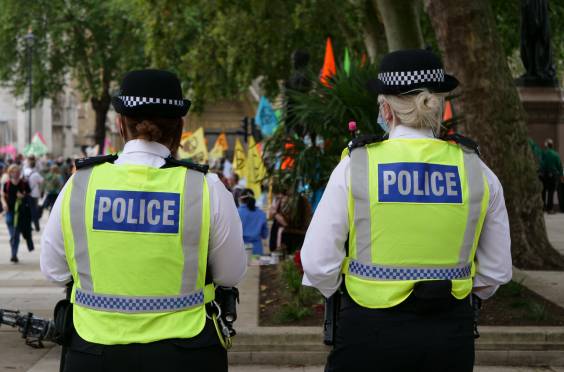A Quick Guide To The Youth Justice System In England And Wales
A Quick Guide To The Youth Justice System In England And Wales
Introduction
Although it seems like children and young people are committing more offences than ever before, Government statistics show that overall proven offences committed by this population sector has dropped around 61% in the last decade. The number of children in custody in the year ending March 2024 was 430, a fall from 3% on the previous year and the lowest number on record. And although Black children remain over-represented in child custody statistics (around 25%), their numbers have also decreased, down 11% on the previous year. Although this is positive news, most of us would agree that the numbers of children being dealt with by the youth justice system are too high. The Mayor of London, Sadiq Khan’s City Hall analysis in December 2021 examined what factors in people’s lives, homes, and communities could result in a young person committing criminal behaviour. It identified issues such as poverty, inequality, high unemployment, school exclusions, poor mental health, and a lack of youth services. School exclusions are coming under increasing scrutiny, with a recent BBC documentary on youth knife crime, fronted by Idris Elba, stating that being excluded from school was often the event that tipped young people into gangs and violence.
If your child has been arrested or is being investigated concerning a criminal offence, you are probably experiencing a range of emotions, including fear, anger, and deep concern for your son or daughter. Understanding how the youth justice system works in England and Wales can help alleviate some of your anxiety, as will instructing an experienced Criminal Defence Solicitor as quickly after arrest as possible.
What is the age of criminal liability in England and Wales?
Children aged 10 years and over can be charged with a criminal offence in England and Wales. Between the ages of 10-17, children are generally sentenced in the Youth Court, though some serious offences are dealt with in the Crown Court. The Youth Court is less formal and is ‘closed’ meaning that only those who are involved with the child and the case can attend hearings. This can include social workers, solicitors, and other appropriate support workers.
In most cases, any person prosecuted who is under 17 years cannot be named in the media. Reporting restrictions also automatically apply to children who are victims of crime or witnesses. The Court can make an exception to the general reporting restrictions relating to children and young people charged with a criminal offence. A recent example is that of the Axel Muganwa Rudakubana, who pleaded guilty to the murder of three girls in Southport in summer 2024. The Judge in the Liverpool Crown Court lifted reporting restrictions to quell online misinformation about who the (at that time suspected) attacker was, noting that Rudakubana was only four months off turning 18 years when no reporting restrictions would apply.
What does the youth justice system do?
The youth justice system for England and Wales was established through the Crime and Disorder Act (1998). It is run under two guiding principles, namely:
• To have regard for the welfare of any child or young person, be they an offender, victim, or witness, and
• Prevent the young person from re-offending.
What are a young person’s rights if they are arrested?
Police have a legal duty to contact a child’s parent or guardian as soon as a child is booked into custody. You will be asked to come down to the police station as your child’s ‘appropriate adult’. Once you arrive, you child can be informed of their rights and have their fingerprints etc taken. You will be allowed to have some time alone with your child and have the right to contact your Solicitor. The police are required to consider your child’s welfare at all times, including ensuring their mental health is protected and they have access to food, water, and any medication they need.
Your child may be asked to attend an interview under caution. It is important you both take advice from a Solicitor before this happens and have them attend the interview. This is because what your child does or does not say during the interview can have a significant impact on whether they are prosecuted.
Once the interview is over, the police must decide what to do. They may:
• take no further action;
• use a community resolution, for example an instant apology and reparation for a minor first time offence;
• a youth caution;
• a youth conditional caution; or
• charge the child or young person with the offence.
What is a youth caution and a youth conditional caution?
A youth caution is often used as an alternative to prosecution where the child admits the offence and there is sufficient evidence for a realistic prospect of conviction but prosecuting the child is not in the public interest.
Alternatively, a youth conditional caution is a youth caution with conditions attached to it which may, for example, include a fine or a requirement to attend at a specific place for a specified number of hours. If the conditions are breached without reasonable excuse, your child may be criminally prosecuted.
What should I do if my child gets in trouble with the law?
If your child is arrested or investigated in connection with a crime, you do not have to face the situation alone. Having an experienced Criminal Law Solicitor by your side will ensure your child’s best interests are protected and increase the chances of them being released without charge or with a youth caution or youth conditional caution, neither of which will result in a criminal record.
Bibliography
Sources used to draft this article include:
UK Government Official Website - https://www.gov.uk/government/statistics/youth-justice-statistics-2023-to-2024/youth-justice-statistics-2023-to-2024#proven-offences-by-children
Financial Times - https://www.ft.com/content/ca9d9525-9593-43e3-9c20-b69c83987d8d (behind paywall)
Legislation.gov.uk
UK Government Official Website -https://assets.publishing.service.gov.uk/government/uploads/system/uploads/attachment_data/file/322168/fact-sheet-youth-cautions-appropriate-adults.pdf
London Mayor Official Website - https://www.london.gov.uk/press-releases/mayoral/driving-factors-behind-violence-affecting-young-pe

